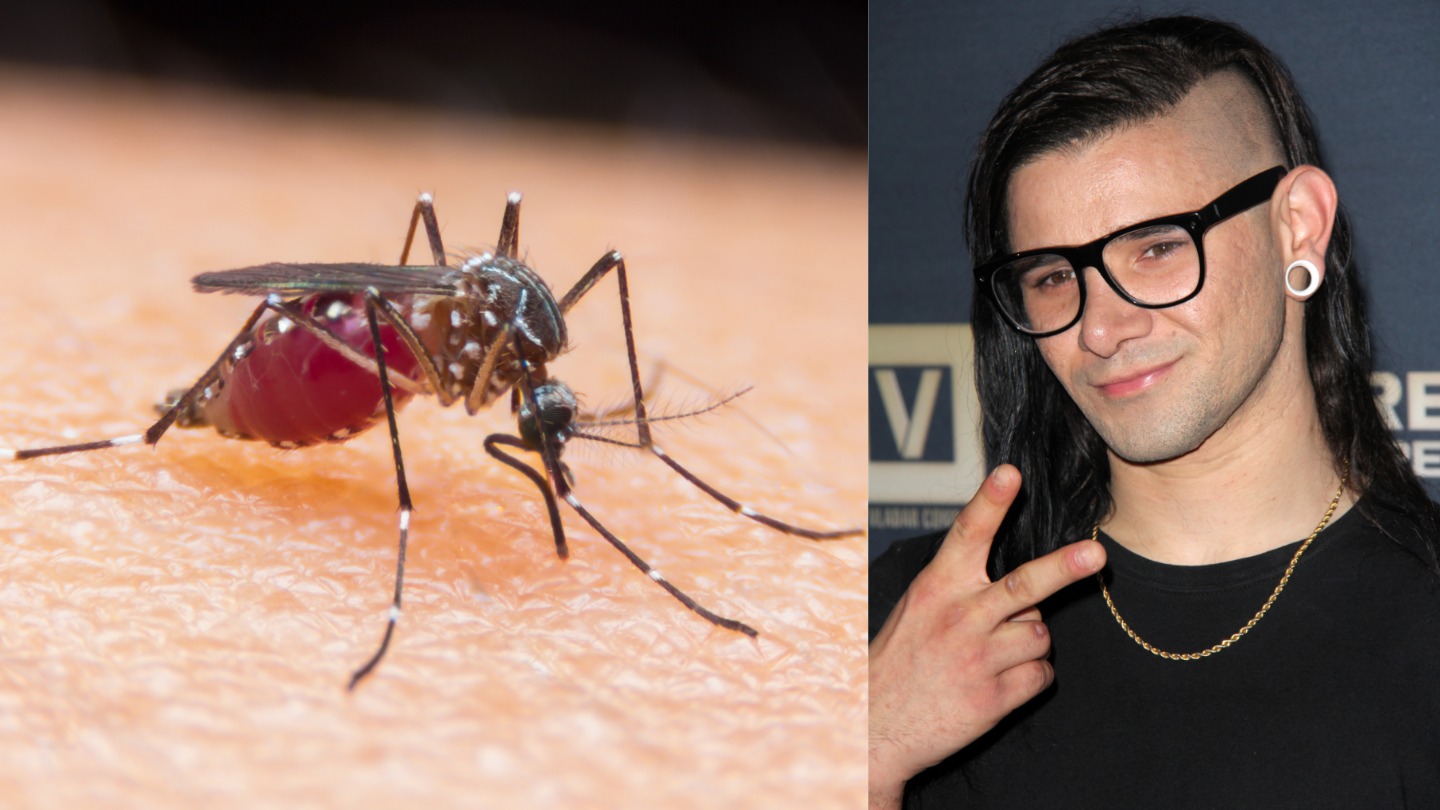Skrillex’s Music Can be Used as Mosquito Repellent, Study Finds

Credit to Author: Gavin Butler| Date: Tue, 02 Apr 2019 15:00:00 +0000
Maybe you remember Skrillex’s 2010 breakout single “Scary Monsters and Nice Sprites.” The track went on to earn the now-famous electronic producer three Grammy Awards and ushered in a somewhat obnoxious albeit brief era of mainstream dubstep. It was never everyone’s cup of tea. But what you probably didn’t know at the time—and what none of us knew until recently—is that the song also functions as mosquito repellent.
Last week, a team of scientists published a very important study in the Acta Tropica journal under the title: “The electronic song “Scary Monsters and Nice Sprites” reduces host attack and mating success in the dengue vector Aedes aegypti.” The thrust of the paper, in short, is that mosquitoes appear to suck less blood and have less sex while Skrillex is playing. And researchers believe this could provide “new avenues for the development of music-based personal protective and control measures against mosquito-borne diseases.”
For the experiment, scientists created two environments in which to study the feeding and mating behaviours of Aedes aegypti, otherwise known as the yellow fever mosquito: one that was silent, and one that had “Scary Monsters and Nice Sprites” blasting out of a nearby speaker. In each case, a swarm of hungry female mosquitoes who’d gone 12 hours without a meal were put into a cage with a restrained hamster, Live Science reports.
In the silent, “music-off” environment, the ravenous mosquitoes descended upon the hamster after an average of 30 seconds. Researchers observed, however, that mosquitoes in the “music-on” environment—where Skrillex was playing—demonstrated “delayed response time and reduced visitation to [the hamster].” They also found that “blood feeding activity had low occurrence when music was played” and that “adults entertained with music copulated far less than their counterparts kept in the environment where there was no music entertainment.”
Researchers speculated that the song’s aggressive, noisy vibrations might have confused the mosquitoes, who need to synchronise their wing-beats in order to attract a mate. As a result, the Skrillex mosquitoes had about five times less sex than their silent counterparts.
“Both males and females produce sounds through the beating of their wings,” the authors of the paper noted. “For successful mating to occur, the male must harmonise its flight tone with that of its partner using auditory sensitivity.
“Adults exposed to music copulated far less often than their counterparts kept in an environment where there was no music.”
The authors seem to relish in the gravity of these findings, which “in addition to providing insight into the auditory sensitivity of Ae. aegypti [mosquitoes] to sound… [also] indicated the vulnerability of its key vectorial capacity traits [its ability to transmit diseases] to electronic music.”
The implications are noteworthy. Because after all, if a bit of Skrillex can fend off virus-transmitting mosquitoes and keep people from getting infected with deadly diseases such as Zika and dengue fever, then EDM could literally save lives around the world.
Follow Gavin on Twitter or Instagram
Sign up for our newsletter to get the best of VICE delivered to your inbox daily.
This article originally appeared on VICE AU.